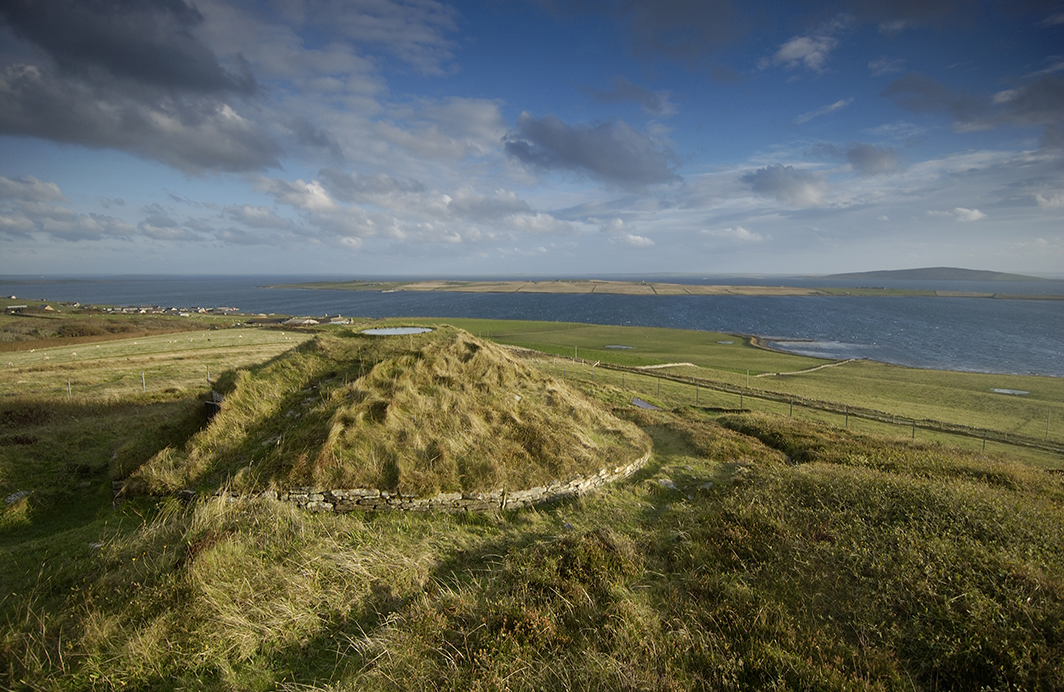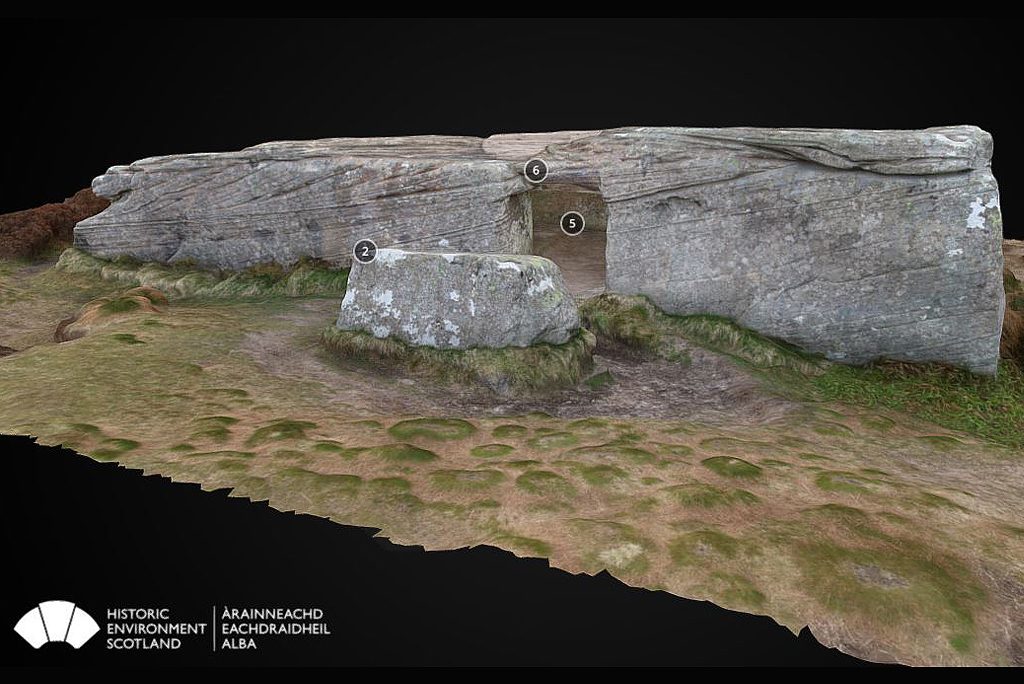Orkney is home to some of the best-preserved examples of chambered cairns in Britain. We’re lucky enough to care for many of them.
What’s in a Cairn?
These drystone structures consist of stone-built chambers encased within a mound of stones. They come in an impressive variety of shapes and forms. They were used for communal burial and other related ritual practices in the Neolithic period – about 4000-2500BC.
Thanks to the wonders of modern technology, you can now explore these amazing monuments from the comfort of your own home! Ten of our chambered cairns have been digitally modelled, along with two Iron Age ‘Soutterrains’ or ‘Earth Houses’ (stone-built underground chambers).
You can access them remotely by visiting our Sketchfab page.
An Immersive Experience
Sketchfab is a website used for sharing digital 3D models. It lets you see objects and places on a computer, smart phone, or on a Virtual Reality device for an immersive experience.
For the Orcadian structures, this gives us the ability to examine and compare a range of diverse architectural forms and their remarkably complex engineering.
As part of the Rae Project, we commissioned archaeologist Hugo Anderson Whymark to create the 3D models, using a process called photogrammetry. This involved taking hundreds of overlapping photographs which specialist software was able to convert into 3D!
Broadening Accessibility
In reality, some of these structures are pretty remote. Holm of Papa Westray South Chambered Cairn lies on a small island that only has sheep for residents!
Others, like Grain Earth House or Cuween Hill, aren’t very easily accessible to visitors with limited mobility. They might also be a bit intimidating to anyone uncomfortable in confined or dark spaces.
The beauty of the digital models is that they broaden accessibility to these places. Our 3D models are fully interactive, so you can choose your viewpoint and examine the structures from any angle.
This includes looking at the cairns from above or below. If you visited ‘in real life’ this wouldn’t be possible, so this is an added bonus! We’ve also been able to add information into the models, highlighting interesting facts to create a mini self-guided tour of each monument.
A Research Tool
The 3D models are a way of exploring historic places when you can’t reach them in person, but they can also enhance a ‘real’ visit. They can also be an extremely useful tool for study and research.
When used alongside other resources like the fabulous Maeshowe App (available now for Android and iOS), or the range of photos and traditional survey drawings in Canmore, the models create an unparalleled opportunity to explore these remarkable structures.

The project is part of our rolling programme to improve interpretation of the 336 historic places in our care. Early next year we’ll put new information panels at these sites, using still images created from the digital models.
Start Exploring
The full list of models are:
- Holm of Papa Westray South
- Cuween Hill Chambered Cairn
- Grain Earth House
- Taversoe Tuick Chambered Cairn
- Quoyness Chambered Cairn
- Blackhammer Chambered Cairn
- Knowe of Yarso Chambered Cairn
- Midhowe Chambered Cairn
- Unstan Chambered Cairn
- Wideford Hill Chambered Cairn
- Dwarfie Stane Rock-Cut Tomb
- Rennibister ‘Earth House’ Souterrain
If you get the chance, why not visit in person and online? Don’t forget to leave a comment to let us know what you think!

